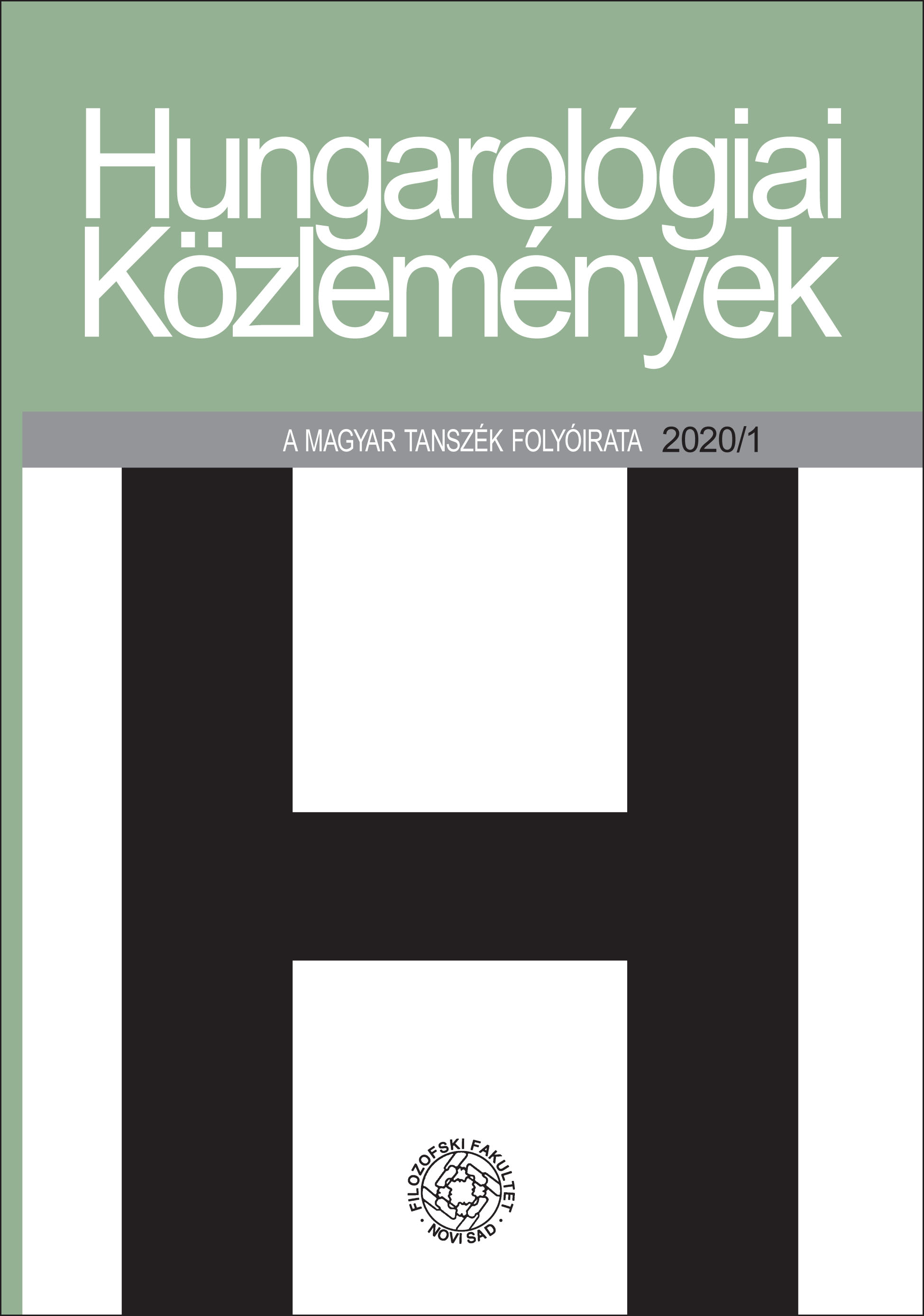Egy sajátos lírai műfajról József Attila, Radnóti Miklós és Kányádi Sándor verseiben
On a special lyrical genre in the poetry of Attila József, Miklós Radnóti and Sándor Kányádi
Author(s): Kornélia HorváthSubject(s): Hungarian Literature, Theory of Literature
Published by: Филозофски факултет, Универзитет у Новом Саду
Keywords: genre; lyrical poetry; Attila József; Miklós Radnóti; Sándor Kányádi
Summary/Abstract: In the poetry of Attila József and then Miklós Radnóti a new genre-form is presented, which hardly can be found in the books of literary theory and poetics as an autonomous genre. The common feature of these poems that their title consists in only one word, from a grammatical aspect a continuous participle (gerund). In some cases the titleword is used also as a noun in Hungarian language (for ex. Bevezető [’Introducing’], Altató [’Sleeping’] in Attila József, Sirató [’Weeping’], Toborzó [’Recruiting’] in Radnóti, or Álmodó [’Dreaming’] and Ballagó [’Walking’] in Kányádi). However, in more cases they obtain a noun-character and a genre- meaning power just because of their status as an independent title (for instance Hívogató, Dudoló [Attila József], Szusszanó, Bájoló [Radnóti], Hessegető, Kerekítő [Kányádi]). Furthermore, there are some very rare or dialect words among these titles (for e. Keseredő [Radnóti], Tűvé-tevő, Kallózó [Kányádi]), and sometimes we can even reveal a unique word-creation practice, a so called hapax legomenon (Tószunnyadó [Attila József], Emlékvirrasztó [Kányádi]). The paper aims to show the special poetic and thematic properties of this genre-form, its potential roots and its differences in the corpus of the three mentioned poets, with a special emphasis on Attila József and Miklós Radnóti, onorating in this way Imre Bori’s scholarly work.
Journal: Hungarológiai Közlemények
- Issue Year: 21/2020
- Issue No: 1
- Page Range: 50-61
- Page Count: 12
- Language: Hungarian

